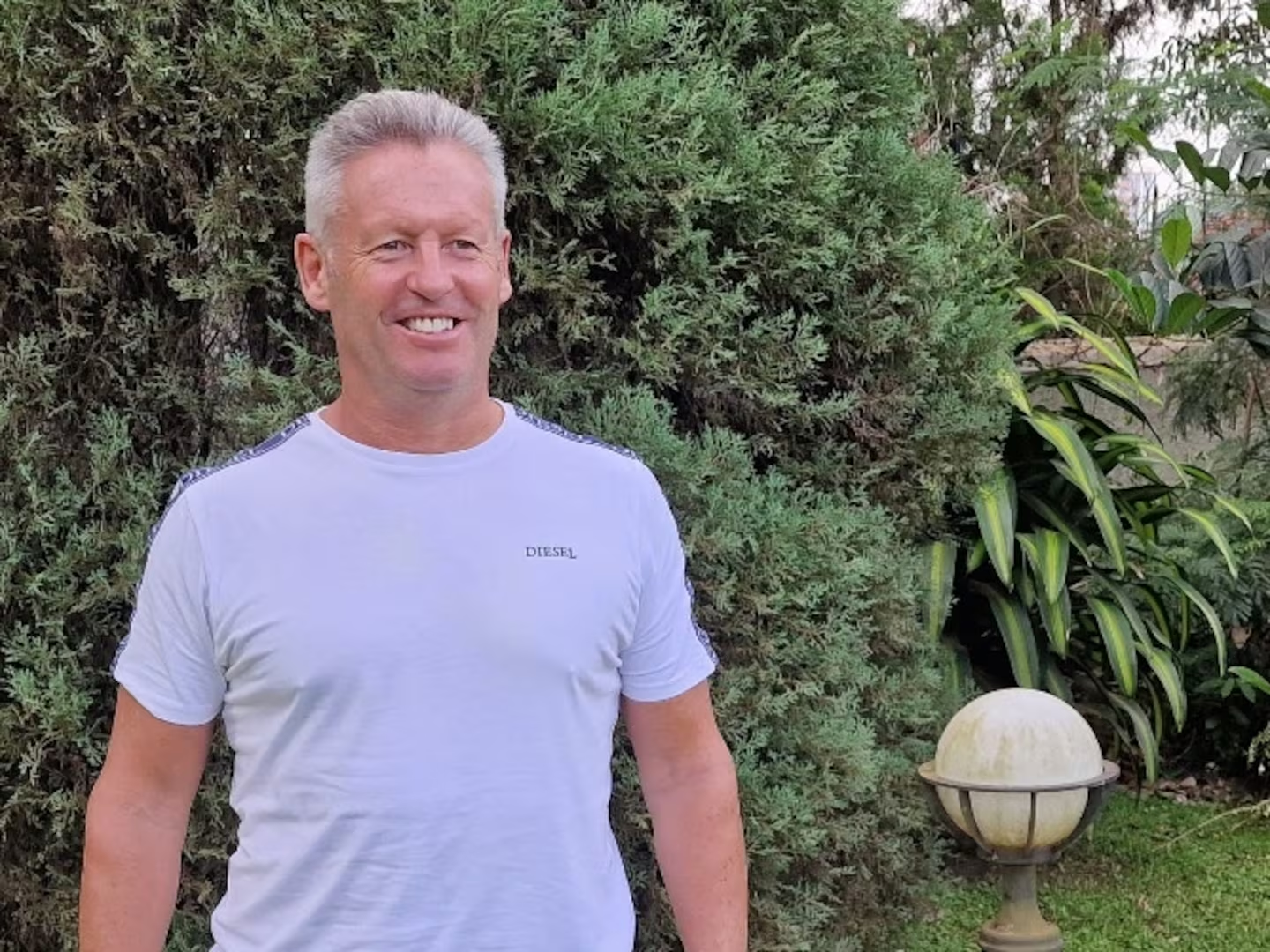- Details
- East Africa
- 885
Dubliner Declan Peppard joined British Airways from school as a reservation sales agent back in 1983 on the princely salary of IR£6,400 a year. It was a modest start to what blossomed into a fruitful 20-year career with the airline that saw Peppard appointed to senior management positions in Zimbabwe, Uganda and Brazil.
Since 2000, Peppard has lived in the Ugandan capital, Kampala, and for the past 20 years he has been at the helm of Travel care Uganda, a corporate travel agency he cofounded in 2005. More than 90 per cent of the company’s turnover is related to outbound business travel, with the remainder accounted for by private holidaymakers, typically from Europe, who come to Uganda mainly for gorilla trekking.
Travel care employs 14 people and, although Uganda is a relatively small market, he says the company has “become a big fish in a small pond and the quality of the service provided by our travel advisers rivals and often surpasses what you’d find anywhere else”, who used to run with Raheny Shamrocks and now keeps fit by going to the gym six times a week and playing what he describes as “lousy” golf.
Peppard attributes his peripatetic career to the fact that, in his early 20s, he became part of BA’s overseas pool, which was a small group of employees who provided cover at BA operations around the world. “This was 1989 when BA still had many expat country managers and airport managers on the payroll and we covered when they were on leave or there was a crisis,” says Peppard.
“In 1991 I was posted to Zimbabwe as customer service manager with the airline and spent two years there. In 1993 I moved to Uganda as country manager and my key responsibility was to make the London-Entebbe route profitable. With the help of a great team, we succeeded. In 1997 I left Uganda for the role of commercial director for Brazil, with a remit to dramatically improve our sales performance: over the course of two years, we grew sales from $34 million to $64 million.”
In 2000, Peppard was headhunted to run a travel agency in Uganda. Five years later he and two others struck out on their own to set up Travel care Uganda.
Peppard says the sudden shutdown of international travel when Covid hit was a very worrying time for the company but it weathered the storm by getting involved in arranging repatriation flights.
“Thankfully this generated enough income to tide us over with no lay-offs but when it happened, I thought, jeepers we’re really in trouble now,” says Peppard, who has a family of four girls including twins at college in the UK and daughters working in Dublin and Harare.
“Opening and operating a business in Uganda is relatively straightforward. And as long as you adhere to the regulatory requirements, you can grow your business with minimal obstacles,” says Peppard. “It’s crucial to remember that, even though I now hold both Irish and Ugandan passports, I am still a guest in Uganda and must always respect the local laws, culture, and traditions.
“One key aspect of doing business here is the importance of maintaining a respectful and human approach to both colleagues and customers. In Uganda, this personal touch is deeply valued and integral to business success. I sometimes feel that, in Ireland, with the rapid advance of technology, we might have lost a bit of that human connection in our business dealings.”
The people here are genuinely good-natured and extremely friendly. We are free of violent crime and I have never felt threatened or at risk, even during elections
Peppard says there is a vibrant Irish community in Uganda with events such as St Patrick’s Day, All Irelands and the Six Nations tournament well celebrated.
“Our current ambassador, Kevin Colgan, regularly hosts the Irish community and every one of the ambassadors who have been here in my time have been truly remarkable individuals who have enhanced Ireland’s reputation in the region,” he says.
Despite being a big fan of the “perfect Ugandan climate, which never gets too hot and is never cold”, Peppard misses the changing seasons and the crisp autumn air that marks the passage of time back home.
“The year here is divided by wet and dry seasons and when it rains, it really rains and there’s a lot of flooding and the road system struggles to cope. You try not to drive anywhere at this point as a normal 15-minute journey could take an hour or even two. At the best of times, Kampala is a bit chaotic with horrendous traffic and overcrowding with private taxis and boda-bodas (bicycle and motorcycle taxis).
“But the people here are genuinely good-natured and extremely friendly. We are free of violent crime and I have never felt threatened or at risk, even during elections.
“Sometimes living in a landlocked country makes me long for the sea as there’s nothing quite like the calming presence of the ocean. And I truly miss St Anne’s Park in Dublin. It’s always been my sanctuary, a place where I could escape, reflect and recharge,” Peppard adds.
“On the plus side, working abroad has given me opportunities I wouldn’t have had at home, particularly in terms of the exceptional training I received during my time with British Airways. The overseas pool programme provided invaluable experience that greatly influenced my career. Now as I approach 41 years in the airline and travel industries, I can confidently say that such international exposure has been pivotal to my success in business.” By Olive Keogh, Irish Times






